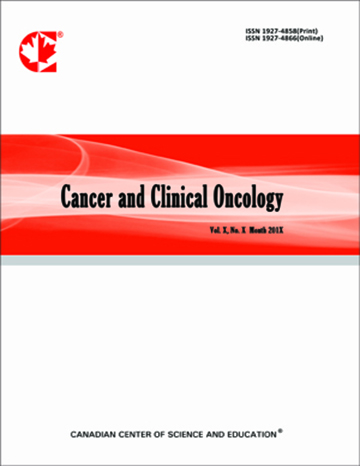Bcl-2 Family Gene Expression in Oropharyngeal Squamous Cell Carcinoma
- Jeremiah Tracy
- Ian Mukand-Cerro
- Miriam O'Leary
- Nora Laver
- Richard Wein
Abstract
Dysregulation of apoptosis is a well-described characteristic of malignant transformation. In the field of colorectal cancer, the Bcl-2 family of apoptotic proteins has been characterized as a marker of poor prognosis and response to current chemotherapeutic agents. In head and neck squamous cell carcinoma (SCC), the role of Bcl-2 and associated apoptosis proteins is less well understood.
Immunohistochemical staining was performed in order to assess for expression of Bcl-2, Bcl-Xl, and Bax in surgical or biopsy specimens of patients treated for oropharyngeal SCC from 1999-2009. This data was correlated with the clinical outcomes of recurrence and/or persistence of disease.
Our findings on 20 specimens are presented. By establishing the association between these pathologic biomarkers and clinical characteristics of disease, more accurate diagnostic and prognostic tools will be available in the care of head and neck cancer patients.
- Full Text:
 PDF
PDF
- DOI:10.5539/cco.v3n1p11
Journal Metrics
Google-based Impact Factor (2018): 3.94
h-index (August 2018): 8
i10-index (August 2018): 6
h5-index (August 2018): N/A
h5-median(August 2018): N/A
(The data was calculated based on Google Scholar Citations. Click Here to Learn More. )
Index
Contact
- Lexie GreyEditorial Assistant
- cco@ccsenet.org
